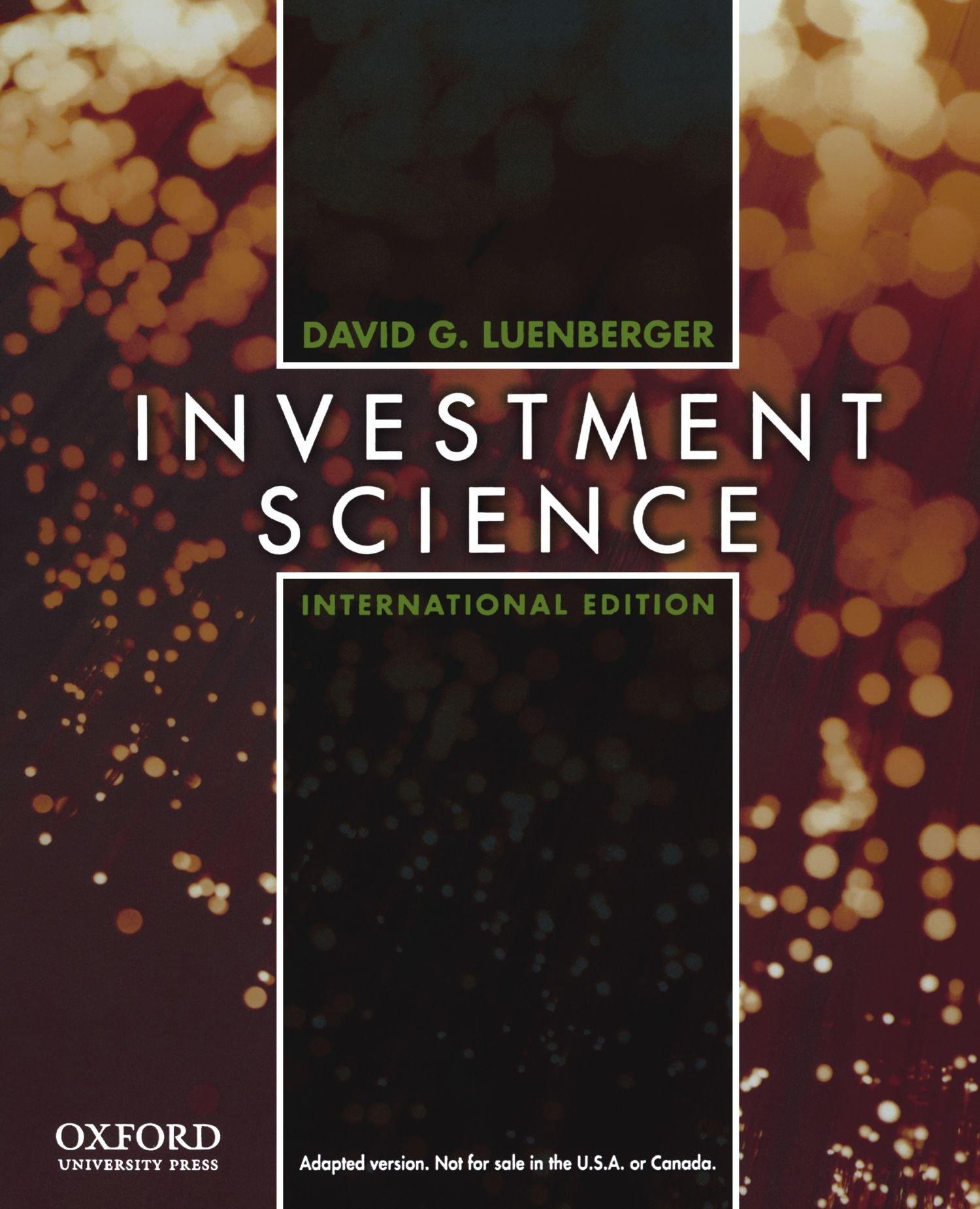7. (Bond taxes) An investor is considering the purchase of 10-year US Treasury bonds and plans to...
Question:
7. (Bond taxes) An investor is considering the purchase of 10-year US Treasury bonds and plans to hold them to maturity Federal taxes on coupons must be paid during the year they are received, and tax must also be paid on the capital gain realized at maturity (defined as the difference between face value and original price) Federal bonds are exempt from state taxes This investor's federal tax bracket rate is = 30%, as it is for most individuals There are two bonds that meet the investor's requirements Bond I is a 10-year, 10% bond with a price (in decimal form) of P = 92 21 Bond 2 is a 10-year, 7% bond with a price of P = 75 84 Based on the price information contained in those two bonds, the investor would like to compute the theoretical price of a hypothetical 10-year zero-coupon bond that had no coupon payments and required tax payment only at maturity equal in amount to 30% of the realized capital gain (the face value minus the original price) This theoretical price should be such that the price of this bond and those of bonds 1 and 2 are mutually consistent on an after-tax basis Find this theoretical price, and show that it does not depend on the tax rate. (Assume all cash flows occur at the end of each year)
Step by Step Answer:






